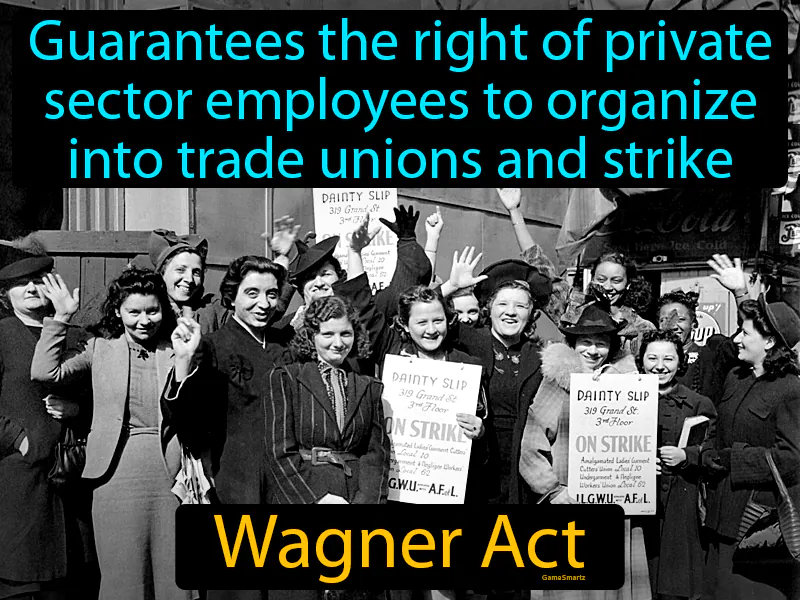Wagner Act
Wagner Act: Easy to understand
The Wagner Act, also known as the National Labor Relations Act of 1935, was a key part of Roosevelt's New Deal, aimed at addressing labor unrest during the Great Depression. It responded to problems of unfair labor practices, where workers faced harsh conditions and had little power to negotiate for better wages or working conditions. By guaranteeing the right to form unions and strike, it empowered workers to demand fair treatment and helped improve the standard of living for many families. Today, the Wagner Act still matters because it supports workers' rights to join unions and advocate for themselves, impacting job security and conditions. For example, if a group of teachers wants better classroom resources, the ability to unionize and negotiate can lead to positive changes in their work environment, benefiting not just them but also their students.

Practice Version

Wagner Act: Guarantees the right of private sector employees to organize into trade unions and strike. Wagner Act. The Wagner Act, enacted in 1935, is a key U.S. labor law that supports workers' rights to unionize and collectively bargain.